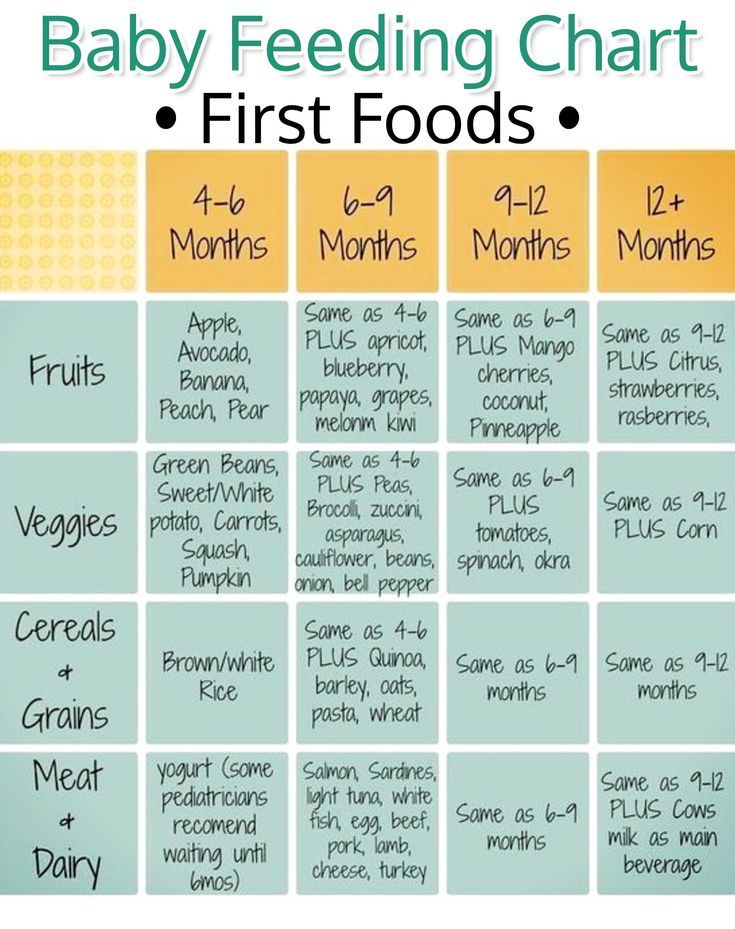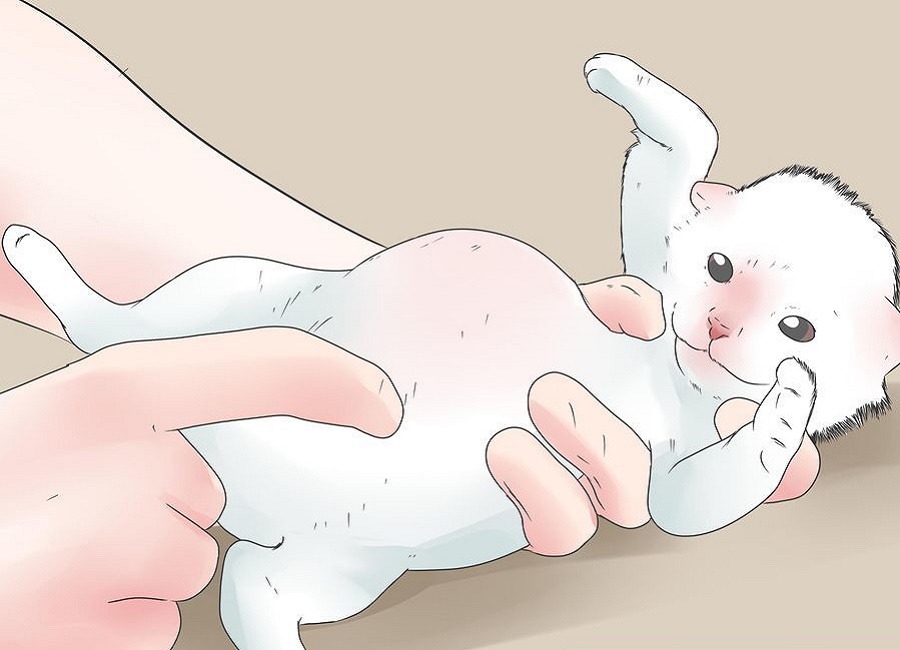Baby sleep through the night without feeding
How long should a baby sleep at night without eating?
Photo credit: iStock.com / AleksandarNakic
Most babies are able to sleep through the night – or sleep for at least six hours without waking up to eat – sometime between 3 to 6 months of age. Healthy babies who are born full-term are generally able to sleep through the night without a feeding starting at 3 months of age or when they weigh 12 to 13 pounds. However, babies' sleep cycles only become consistent and predictable around the time they're 6 months old.
Just because babies are technically able to go through the night without a feeding, however, doesn't mean they will. Night wakings can happen for many other reasons, including separation anxiety, an inability to self-soothe back to sleep, sleep regressions, teething, and bed-sharing.
If your baby doesn't start sleeping through the night without a feeding between 4 to 6 months of age, you can try night weaning. There are lots of different sleep training methods, from the cry-it-out method to the fading method. Learn about your options and choose one that feels right for you and your baby.
How long should a newborn sleep at night without eating?
Newborns generally sleep for two to three hours before waking to eat, day and night. As they get older, babies are usually able to sleep for increasingly longer stretches of time at night without waking to eat.
Between the age of 2 to 3 months old, healthy babies are often able to sleep for six hours without feeding. Research suggests that about half of babies are able to sleep at least six hours without a nighttime feed by 3 months of age. That rate rises to 62 percent by 6 months of age and 72 percent by 12 months of age, according to the National Sleep Foundation.
So how can you prepare your baby to sleep longer periods at night without eating? Start healthy sleep habits early. Help your newborn learn to fall asleep on their own by following a bedtime routine, putting them to bed when they're sleepy but still awake, and waiting for a few minutes to respond to their fussing when they do wake at night.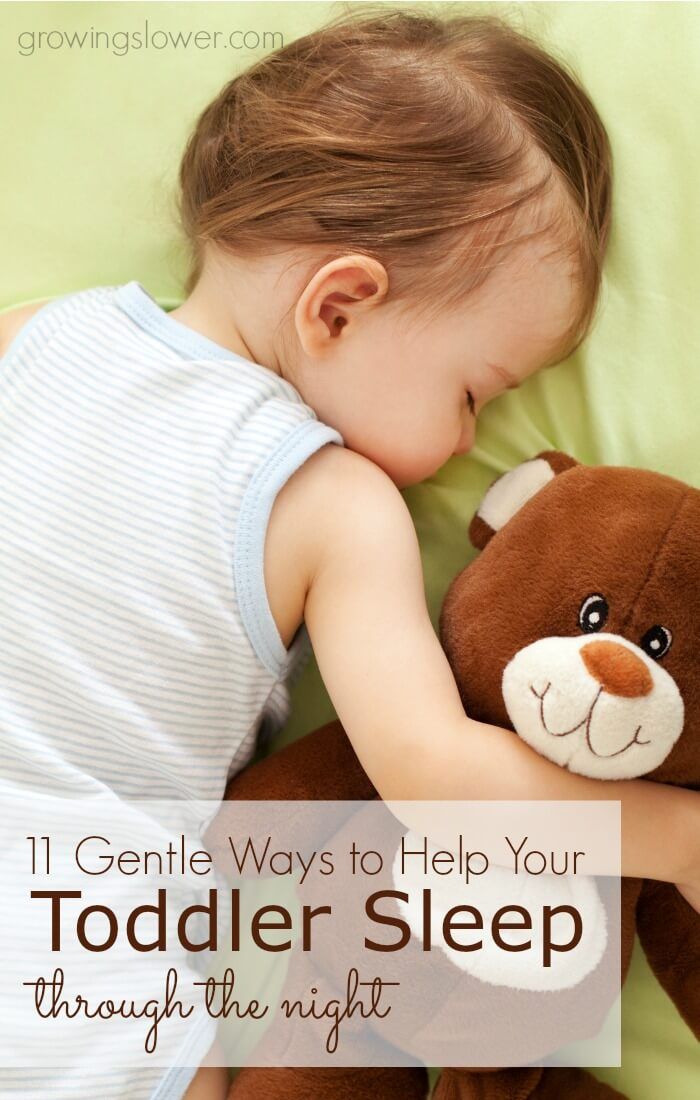 Although your baby may still need to be fed during the night for some time, these tactics help them learn to nod back off without the help of your breast, arms, or a bottle.
Although your baby may still need to be fed during the night for some time, these tactics help them learn to nod back off without the help of your breast, arms, or a bottle.
If your baby was premature or has other health considerations such as digestive problems or failure to gain weight, be sure to discuss their feeding schedule with their doctor before making changes.
Should you wake a sleeping baby to feed?
For the first one to two weeks of life – or until your newborn regains the weight they lost after birth – it's important that they wake up to eat about every two to three hours. Newborns usually do this on their own, but occasionally will sleep for longer. If your baby does sleep for a stretch of more than four hours during this period, wake them to eat.
After the first couple of weeks, when babies surpass their birth weight, most healthy babies don't need to be woken to eat as long as they're growing and feeding well. That means they're gaining weight as expected and producing at least four wet diapers and three poopy diapers per day. Talk to your doctor if you're concerned about your baby's growth or feeding habits.
Talk to your doctor if you're concerned about your baby's growth or feeding habits.
What if my baby won't wake up to eat?
If your baby is healthy, has passed their birth weight, and is feeding and growing steadily, you usually don't need to wake them to feed. Unless their doctor tells you otherwise, let your baby sleep – they'll let you know when they need to eat!
If, however, your baby hasn't yet surpassed their birth weight, or if they were premature or aren't growing as expected, you do need to rouse them to eat anytime they sleep for more than four hours straight.
Know that newborns sometimes have a hard time waking up to eat for the first few days, especially if:
- they're small
- they have jaundice
- you had a difficult labor
- you had an epidural or other pain reliever during birth
If your baby is lethargic and uninterested in eating, these tips can help a groggy baby wake to feed:
- Look for signs that they're in a light sleep cycle, which include flutters under closed eyelids, arm and leg movements, and sucking movements.

- Be sure the room is cool (around 18 C or 65 F) and your baby isn't overdressed, since being too warm makes babies sleepier.
- Try skin-to-skin contact and/or a laid-back breastfeeding position, which can encourage feeding.
Premature babies have unique nutritional needs and may not show hunger signs like crying.
If your baby is premature, or if you're concerned about your baby's weight gain or feeding patterns, talk to their doctor about how to ensure your baby is getting enough to eat.
Sources
BabyCenter's editorial team is committed to providing the most helpful and trustworthy pregnancy and parenting information in the world. When creating and updating content, we rely on credible sources: respected health organizations, professional groups of doctors and other experts, and published studies in peer-reviewed journals. We believe you should always know the source of the information you're seeing. Learn more about our editorial and medical review policies.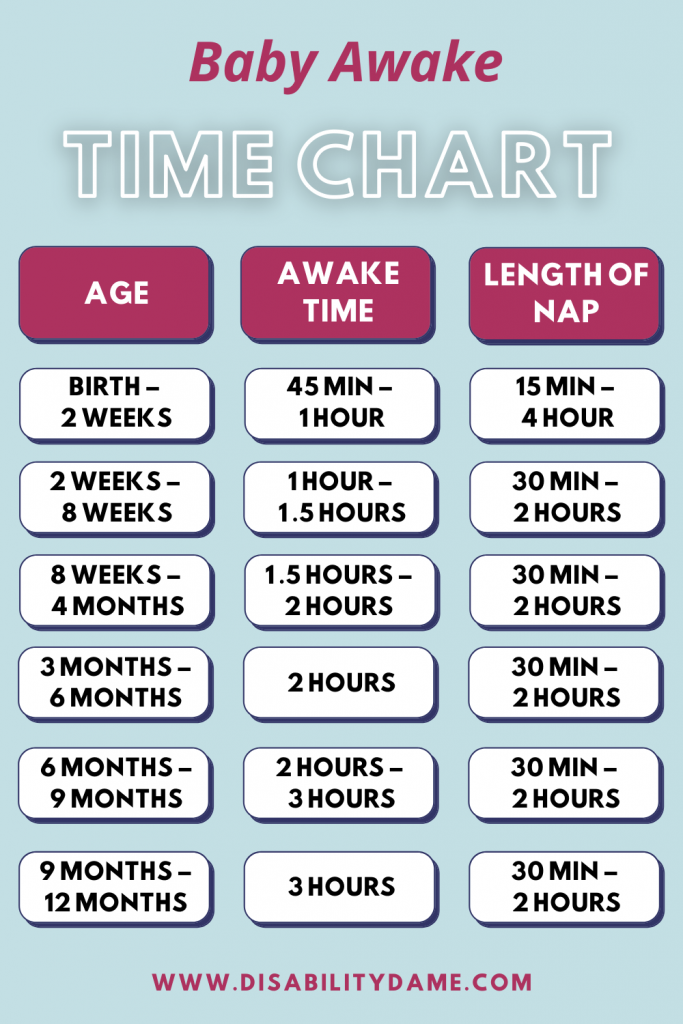
American Academy of Pediatrics. 2013. Sleeping through the night. https://www.healthychildren.org/English/ages-stages/baby/sleep/Pages/Sleeping-Through-the-Night.aspx [Accessed May 2022]
American Academy of Pediatrics. 2016. Failure to thrive. https://www.healthychildren.org/English/health-issues/conditions/Glands-Growth-Disorders/Pages/Failure-to-Thrive.aspx [Accessed May 2022]
American Academy of Pediatrics. 2018. Getting your baby to sleep. https://www.healthychildren.org/English/ages-stages/baby/sleep/pages/Getting-Your-Baby-to-Sleep.aspx [Accessed May 2022]
American Academy of Pediatrics. 2021. Weaning your baby. https://www.healthychildren.org/English/ages-stages/baby/breastfeeding/pages/Weaning-Your-Baby.aspx [Accessed May 2022]
Henderson JMT, et al. 2010. Sleeping Through the Night: The Consolidation of Self-regulated Sleep Across the First Year of Life. Pediatrics 126 (5): e1081–e1087. https://publications.aap.org/pediatrics/article-abstract/126/5/e1081/65212/Sleeping-Through-the-Night-The-Consolidation-of [Accessed May 2022]
La Leche League. 2016. Sleepy baby: Why and what to do. https://www.laleche.org.uk/sleepy-baby-why-and-what-to-do/ [Accessed May 2022]
2016. Sleepy baby: Why and what to do. https://www.laleche.org.uk/sleepy-baby-why-and-what-to-do/ [Accessed May 2022]
Mayo Clinic. 2022. Should I wake my newborn for feedings? https://www.mayoclinic.org/healthy-lifestyle/infant-and-toddler-health/expert-answers/newborn/faq-20057752 [Accessed May 2022]
National Sleep Foundation. 2022. Sleep training. https://www.sleepfoundation.org/baby-sleep/sleep-training [Accessed May 2022]
National Sleep Foundation. 2022. When do babies sleep through the night? https://www.sleepfoundation.org/baby-sleep/when-do-babies-sleep-through-night [Accessed May 2022]
Stanford Children's Health. n.d. Infant sleep. https://www.stanfordchildrens.org/en/topic/default?id=infant-sleep-90-P02237 [Accessed May 2022]
Colleen de Bellefonds
Colleen de Bellefonds is a freelance health and lifestyle journalist. She's raising her toddler daughter and newborn son with her French husband in Paris.
When Do Babies Sleep Through the Night Without Feeding?
Skip to contentNow reading: When Do Babies Sleep Through the Night Without Feeding?
PrevNextI remember my eldest's first full night in the hospital like it was yesterday. And that's because it was a breeze. Yes, I still fed her every 3 hours, but she went back to sleep immediately each time. I wondered what all the fuss was about with the lack of sleep. And then the next night came and it was nothing like the first...I swear she was attached to my boob for almost the entire night. Then home, and more of the same. From then on I understood. And though I was the happiest I'd ever been in my life I found myself wondering how long it would take before she could sleep through the night without a feeding.
And that's because it was a breeze. Yes, I still fed her every 3 hours, but she went back to sleep immediately each time. I wondered what all the fuss was about with the lack of sleep. And then the next night came and it was nothing like the first...I swear she was attached to my boob for almost the entire night. Then home, and more of the same. From then on I understood. And though I was the happiest I'd ever been in my life I found myself wondering how long it would take before she could sleep through the night without a feeding.
It was draining me. I found myself wanting to stop time to soak in all that baby sweetness paralleled by a feeling of wanting to speed it up so we could all finally get some sleep. Eventually, she did sleep through the night.
As much as I would love to tell you the exact moment when a baby will be able to eat enough by day that they can make it all night, it's far from that simple. So we've partnered with Kelley Thompson, Certified Pediatric Sleep Consultant, from Serenity Sleepers to give you a logical timeline of what you can expect when it comes to your baby's sleep and how long they can stretch it without waking for a feeding.
The Reason Why Babies are Hungry at Night
Though this isn't rocket science, it can be perplexing at first why your baby can't fill up on enough calories throughout the day that enables them to sleep through the night like you can.
But there are 2 big differences between you and your baby.
- Your baby's tummy is tiny! And it can only hold so much milk. Within the first couple days of your baby's life we're talking just a couple of teaspoons of milk capacity, and still even only 3-4 ounces around 1 month of age.
- Babies grow at a rapid rate. Initally, they lose weight in the first couple of days, but then they should be back to their birth weight within 2 weeks. So you could see why they'd be so hungry! After that, they'll double their birthweight by about 4 months old. And triple it by age 1! Your 7-pound newborn will weigh around 21 pounds after one year. With such fast-paced growth (compared to your weight which should roughly stay the same) you can see why eating so much is important.

Because of these 2 factors, it's just not realistic to expect your baby to be able to sleep through the night initially when they're needing to beef up. Because they're able to digest milk pretty quickly (breastfed babies especially), it's likely that they're going to wake up in the middle of the night ready for a meal - perhaps multiple times.
The Definition of Sleeping Through the Night
When your friend tells you that they're baby is sleeping through the night, and you find out that it was actually only a 6-hour stretch, it might make you say, "Hmmm..." After all, you wouldn't be rested with only 6 hours of sleep. What gives?
Sleeping through the night can be defined in one of three ways:
- When the experts say, "Sleeping Through the Night" - generally this means 6 - 8 hours because that's the full stretch that a baby can usually handle at least in the later infant stages (around age 3 months+)
- What you think "Sleeping Through the Night" means for yourself - At least for me, this means 8 hours - and in general, that's about the amount that most adults need to function well during the day.
 Even though you know your baby has different needs, you might think, I can't wait til my baby sleeps through the night so that I can, too (and get your full 8 hours).
Even though you know your baby has different needs, you might think, I can't wait til my baby sleeps through the night so that I can, too (and get your full 8 hours). - What a full night of "Sleeping Through the Night" would be for your baby - Babies generally need a nighttime portion of sleep about 10 - 12 hours in length. Eventually, they WILL sleep this full stretch without waking up in between. But when?
There is a gradual progression in terms of how long your baby can stay asleep before they wake up needing to eat. Though there are other factors that keep babies up at night (which we'll get to), the number one reason they wake up frequently is that they are hungry.
Since you might have three separate expectations, we'll go over when you might expect each of these levels of "sleeping through the night" to occur. With that said, EVERY baby is different, and it may not align perfectly. Formula-fed babies usually "sleep through the night" more quickly than breastfed babies, but not always.
Building a Foundation for Sleeping Through the Night
Yes, your baby being hungry is the main reason they are going to wake up. But they should be able to go longer and longer stretches as they grow without needing those feeds any longer.
When we asked Kelley of Serenity Sleepers her top recommendation for getting a baby to sleep through the night she had this to say:
"First a baby needs to have the proper sleep education and sleep foundations in place before they will be able to sleep through the night.
Once a baby is able to put themselves to sleep on their own, able to link sleep cycles, has age-appropriate routines, and proper day sleep in place they will be able to have longer stretches of overnight sleep.
Sleeping through the night for 11-12 hours at a time, is developmental, and will look different for each baby, but when a baby has proper sleep foundations as stated above, they will do it when their body is ready."
Stage 1 Sleeping Through the Night Without Feeding (6 - 8 hours):
Around 4 months of age is when most parents will start to see signs from their babies that they're able to sleep in longer stretches.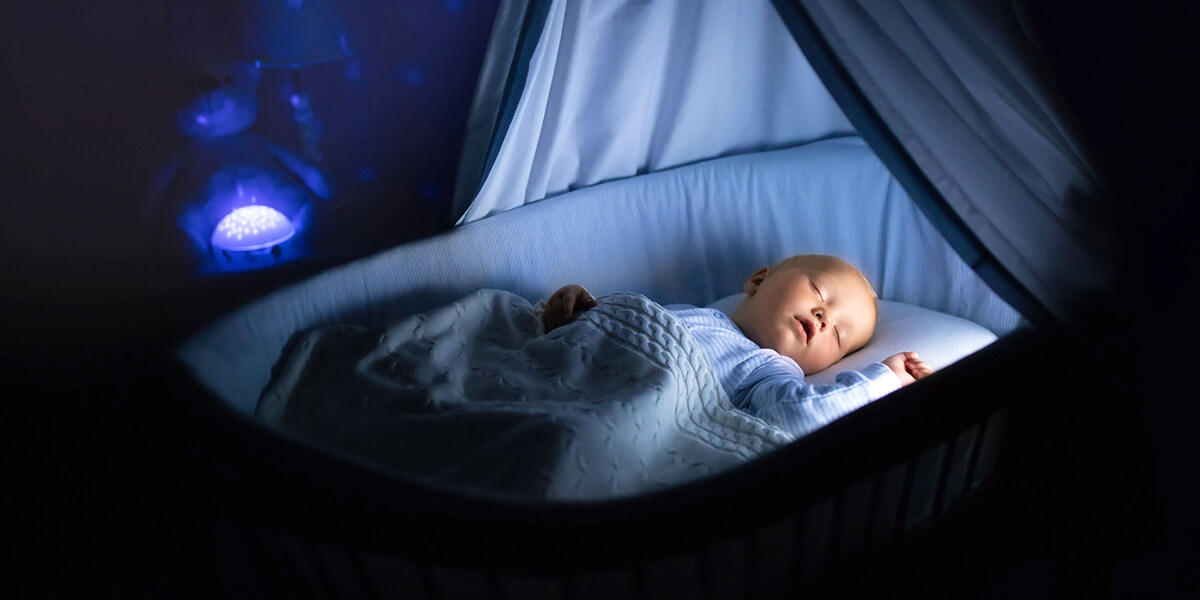 Getting up to 5 and 6 hours by this point is very likely. This is especially true once your baby makes it through the 4-month sleep regression. Be sure to read our article, "Getting Through Your Baby's 4-Month Sleep Regression," to find out what you can expect during this time.
Getting up to 5 and 6 hours by this point is very likely. This is especially true once your baby makes it through the 4-month sleep regression. Be sure to read our article, "Getting Through Your Baby's 4-Month Sleep Regression," to find out what you can expect during this time.
According to pediatrician Susan E.C. Sorenson over at BabyCenter, 6-month-olds "can sleep comfortably for at least six hours without waking up to eat." And some babies will do it even sooner than that.
By this age, babies usually have structured naps during the day and have plenty of wake time where they fill up on breastmilk and formula and also are stimulated enough to make them sleepy at night. Additionally, they're able to take in more calories at a time and are able to consolidate most of their night feedings down to just 1 or 2 per night.
We want to reiterate that it's different for every single baby, but expecting a 6-8 hour stretch of sleep from your 6-month-old is not unreasonable.
Stage 2 Sleeping Through the Night Without Feeding (8-9 hours):
Around the 7 - 9 month timeframe, you'll see your baby gradually sleeping for longer and longer stretches. It's important to remember however, that baby sleep is not linear. It might look like 1 step forward, 2 steps back for awhile. In other words, a few great nights of sleep might be followed by a few not so great ones. The important thing here, however, is to notice the progression from your little one as you start to see the length of sleep they are capable of.
Even though you yourself are not likely getting a straight 8-9 hours yet (because your baby will go down before you hit the hay), this is a big turning point for parents! And Certified Pediatric Sleep Consultant Kelley Thompson shared with us that this is a typical age where she sees a lot of babies even sleeping all the way through the night!
As long as you have worked hard sleep training your baby, and used self-soothing methods such as putting them in a Dreamland Baby weighted sack, your baby should easily go back down after you feed them. One 3 or 4 am feeding is really not so bad if you keep the lights low and keep your baby drowsy while you feed them. Simply put them back down and they should go right back to sleep until it's time to wake for the day.
One 3 or 4 am feeding is really not so bad if you keep the lights low and keep your baby drowsy while you feed them. Simply put them back down and they should go right back to sleep until it's time to wake for the day.
By this point, it's so nice to look back on how far you've come. And that full night's sleep is so close you can taste it...
Stage 3 Sleeping Through the Night Without Feeding (the full night - up to 12 hours)
Sleep expert Dr. Sarah Mitchell, who did a guest post for us recently, said that she sees many formula-fed 5 month-olds who can go 11-hour stretches at night. Though this is not the norm...we're just saying that it IS possible, and just goes to show how wide the spectrum can spread.
What's more likely is a 9 to 12-month-old who sleeps their full night of sleep without waking to eat. What this means is that you put your baby down for bedtime, perhaps at 7:30, and the next time you see their well-rested happy face isn't until 6:30 or so the next morning!! This is just as glorious as it sounds.
Not only is your baby getting healthy stretches of sleep so they can grow and thrive, but so are you. And as a busy parent, you know how much you need that uninterrupted sleep (not to mention those quiet hours to yourself before you go to bed!)
Other Factors that Keep Your Baby Up at Night
It's important to know what your baby is capable of in terms of sleeping through the night without the need of being fed. Though it's perfectly normal that your baby might still be waking in the middle of the night beyond the averages, if they are, you might want to start considering if it's something else that's waking them up at night.
Baby sleep can be all over the place in the first year, and it's not always because they're hungry (though that IS the top reason). If you are sure that your baby isn't waking out of hunger, here are some other possible reasons they might be waking up:
- they still have their days and nights mixed up
- sleep regressions
- growth spurts
- lack of self-soothing skills
- baby wants to see you!
- teething
- sickness
Some of these are completely unavoidable.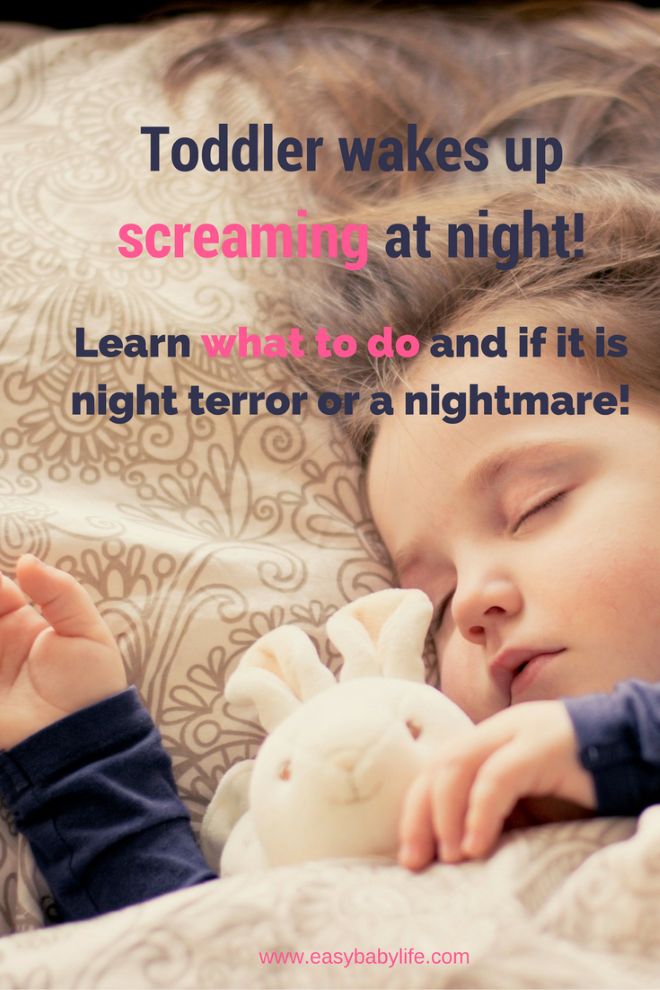 We recommend taking it in stride and keeping reasonable expectations of what your baby can do in their first year of life. Beyond that, you can be sure that you're using our best sleep tips to help your baby maximize their length of sleep without waking. Here's what we suggest:
We recommend taking it in stride and keeping reasonable expectations of what your baby can do in their first year of life. Beyond that, you can be sure that you're using our best sleep tips to help your baby maximize their length of sleep without waking. Here's what we suggest:
- Set up a bedtime routine early on. You don't need to stress about this in the first few weeks home with your new baby, but once your baby is starting to have more noticeable sleep/wake cycles, getting into the habit of a good sleep routine is important. We discuss those steps in this article, and one item we recommend using is a Dreamland Baby weighted sack. The gentle weight feels like a hug to your baby and naturally induces sleep. Countless reviews state how well it helps little ones sleep through the night including this one from mom, Alex S.:
"This product truly saved us. It gave us back our nights, and helped our little guy sleep 6-7 hours every night. I can't thank Dreamland Baby enough for making such an incredible product. I would suggest for any new moms out there.”
I would suggest for any new moms out there.”
- Start sleep training around 4 months of age. Sometimes sleep training can get a bad rap, but it really shouldn't! It does not have to involve lots of crying and is one of the best ways to set up your baby for sleeping success! Kelley of Serenity Sleepers shares that, "most babies struggle to initially put themselves to sleep, and rely on someone or something to put them to sleep and then back to sleep when they wake during the night." Getting your baby to learn to sleep independently is really important.
- If your baby seems hungry, feed them! Even if your baby has been consistently sleeping through the night, they may go through a growth spurt where they need to eat again. Always assume this is what your baby needs unless your instincts tell you otherwise. We guarantee they'll be back on track after a couple of days.
The truth is that all babies learn to sleep through the night. In time (likely before they turn one), their bodies will allow them to take in enough calories by day that they won't need to wake up to eat. Teaching them to self soothe and be an independent sleeper will also help speed along the process.
In time (likely before they turn one), their bodies will allow them to take in enough calories by day that they won't need to wake up to eat. Teaching them to self soothe and be an independent sleeper will also help speed along the process.
Do babies naturally drop night feeds?
As your baby grows and develops, it’s possible that she will no longer wake up for a feeding by the time she is between 4 and 6 months old. That’s because her tummy can now hold more food which may be helping her sleep for that much anticipated longer stretch of time. If you prefer to consider her weight, it’s usually at 12 pounds when babies no longer need a nighttime snack.
Keep in mind that every baby is different and you can decide when it’s time to cut back on the night time feeding when it’s comfortable for you. Of course, this is definitely something to discuss with your pediatrician if you have any concerns.
Which feeds drop first at night?
Some experts suggest to drop the first night time feeding from the routine. So if your baby feeds at 10pm and 2am, start by dropping the 10pm meal. Others suggest to cut down on every feeding by at least 3 minutes every few nights until you decrease it by enough that that feeding can be eliminated altogether. Remember that the older she gets, the less she’ll need the nighttime feed and dropping a feeding may occur naturally, ie: baby will sleep through it or show little interest in taking the breast or bottle.
So if your baby feeds at 10pm and 2am, start by dropping the 10pm meal. Others suggest to cut down on every feeding by at least 3 minutes every few nights until you decrease it by enough that that feeding can be eliminated altogether. Remember that the older she gets, the less she’ll need the nighttime feed and dropping a feeding may occur naturally, ie: baby will sleep through it or show little interest in taking the breast or bottle.
How long should nighttime feedings take?
While every baby is different, depending on her age, nighttime feedings can take anywhere from 20-30 minutes for newborns, every few hours, to a quick 5-10 minute snack at 6 months, a couple of times a night. There’s no such thing as one size fits all when it comes to baby, so trust your instinct and always talk to your pediatrician if you think your baby isn’t eating enough… or too much.
How long after feeding can I put my baby down?
It’s always a good idea to burp your baby before putting her down after a feeding to avoid any kind of reflux.
Should I feed my baby every time he wakes up at night?
It may be an impulse to rush into baby’s room at every sound or cry, but remember, as a baby develops her sleep patterns, it’s okay for her to miss a feeding here and there, especially once she’s at the 6-month mark. By then, she might be sleeping for 6-8 hour stretches without waking to eat… and by the time she’s 9 months, she may even be sleeping for an entire 11-12 hour stretch!
It’s in those early newborn months that it’s important to feed baby every time she wakes, which could be as much as every two hours during a 24-hour cycle. Be sure to check with your healthcare practitioner or pediatrician if you have any concerns about your infant’s sleep and/or feeding schedule.
Will my milk dry up if baby sleeps through the night?
Some parents feel that their milk isn’t coming in during evening hours as much as it did during the day, so babies may take longer to nurse. Don’t let this worry you! It’s normal for babies to eat less at night as they begin to sleep for longer stretches. This also means that your little one is probably eating more during the day. As new feeding schedules occur, your breasts will adjust. You can also continue to pump at night to keep your milk supply flowing.
Don’t let this worry you! It’s normal for babies to eat less at night as they begin to sleep for longer stretches. This also means that your little one is probably eating more during the day. As new feeding schedules occur, your breasts will adjust. You can also continue to pump at night to keep your milk supply flowing.
How do I increase milk supply when baby sleeps through night?
The more you nurse, the more your milk supply will increase. So as long as you continue to pump once or twice during the night while baby sleeps, your milk supply shouldn’t dwindle. It’s also advised to perhaps add an additional one or two pumping sessions whenever you believe that you have a fuller supply to pull from.
A Certified Sleep Consultant Answers All Your Baby Sleep Questions
Helping Baby Adjust to Spring and Fall Time Changes
When babies start sleeping through the night without waking up
Frequent nocturnal awakenings during infancy bother many new parents. However, knowing infant sleep patterns will show why a baby will sleep like this and when they will sleep at night.
However, knowing infant sleep patterns will show why a baby will sleep like this and when they will sleep at night.
Sleep temperament
All children are different, such as a gentle child, a cheerful and active child, a child who is difficult to suppress and easily angry, and a child who is calm and relaxed. And it only affects the sleep of the child. However, if parents take into account the child's temperament, they will better understand the child, influence sleep, and set up sleep rituals correctly.
Depending on temperament, some children relax and sleep before bed, while others do not. One person gets wet and wakes up, but the other does not interfere with sleep. Given that the baby is sensitive to irritants such as external sound and temperature, it will be easier for him to sleep at night.
It is a good idea for an active child to choose a long sleep ceremony so that she can smoothly move towards the desire to sleep from the state of awakening. If you are a calm child, your mother will sleep as soon as you turn off the electricity, but this is not a living child. It makes sense to have a live baby after breastfeeding, so eat dinner early.
It makes sense to have a live baby after breastfeeding, so eat dinner early.
At what age do people stop waking up at night?
This problem lies in each person who calls the child and is solved individually. A newborn baby rarely sleeps more than 3-4 hours, so it's best not to think that such a baby will sleep through the night. Rarely, peanuts immediately after birth may have been dormant for a long time thanks to their parents, which is probably the exception.
Many babies start sleeping longer at night, around 6 months. If the daily routine is set correctly, you will sleep for 5-6 hours without waking up or waking up to breastfeed in the morning. Parents who have gone through a time of pain, disease, nocturnal breastfeeding, and teeth growth will finally be able to sleep well through the night.
Why does the child wake up?
Breastfeeding is digested quickly, so in most cases the newborn baby wakes up. However, apart from the hungry, children have a problem that affects sleep.
- Pain often interferes with a child's sleep for less than 3 months.
- Growing teeth mean nighttime sleep is a problem after three months.
- Damp diapers are the cause of insomnia, which often occurs 3 months after birth.
- What about a runny nose?
- Very loud sound
- Tension on limbs x-may wake up by moving your body.
- Nervous symptoms.
In addition, children who can fall asleep quickly fall asleep quickly when they wake up at night. If you fall asleep at night with a baby bottle or nausea, a baby who wakes up in the middle of the night expects to sleep the same way.
Changing the structure of sleep with age
The dream of any person is divided into several types.
- Fast fast. It is in a dream that people dream, and the brain at this time processes the information received during the day. Constant sleep is the easiest time to wake up.
- is slow. It is calm and deep.
 During sleep, immunity increases, the body grows, rests, and it is difficult to wake up. There are four stages of non-REM sleep, time, there is light sleep and deep sleep.
During sleep, immunity increases, the body grows, rests, and it is difficult to wake up. There are four stages of non-REM sleep, time, there is light sleep and deep sleep.
Newborns spend about half the time on REM sleep. Of the 16 hours of sleep that we sleep every day, about 8 hours are spent in REM sleep. In premature babies, REM sleep can be 90% of total sleep time. This is why babies often wake up.
Over time, the percentage of non-REM sleep increases and the child wakes up less often. By age 2, REM sleep is about 4.5 hours out of every 13 hours of sleep per night, and about 1 hour by age 14.
Adults
Adults are said to spend up to 20% of their time in REM sleep and the rest of the time in non-REM sleep. Sleep deprivation occurs because the sleep patterns of parents and children are very different. Also, during the day, adults are busy with different things and often do not have the opportunity to take a nap. Also, when the baby sleeps in a separate room, the mother who doesn't sleep with the baby ends up waking up in the middle of the night, disrupting sleep.
Research has shown that mothers who wake up during REM sleep (often in the early hours of the morning when babies wake up to eat) are less able to manage daily activities during the day. It seems that the concentration has decreased and it has become difficult to prioritize.
By going to bed early, you can avoid waking up during REM sleep. Thus, the mother can go through REM sleep from the moment the baby wakes up. Dad can take over breastfeeding in the morning and not disturb Mom's REM sleep every night.
Parents are excited to see their nightly activities turn into quality sleep as their child grows. The formation of a full night's sleep without awakening, as a rule, occurs naturally as the child grows. How many months have you had restless sleep? As Dr. Komarovsky points out, already approaching the age of one, children fall asleep safely at night and no longer wake up with noises, as before. But some children grow up against the laws of nature. When day and night are intertwined, it is no longer possible to put them together. Parents themselves can correct the situation without the help of a child specialist.
Parents themselves can correct the situation without the help of a child specialist.
When the baby is sleeping sweetly, young mothers and fathers can finally relax and do household chores. Many families dream of "sleeping with the baby all night."
The value of baby sleep and its specificity
Experienced scientists and experienced pediatricians claim that more than half of babies aged 1.5-2 months can sleep quite calmly at night without disturbing their parents (we read Recommended: How much a child should sleep at 2 months: table). Let's look at the factors that affect the quality of sleep in children.
- from the way of supply. Breastfed babies need to wake up after a certain amount of time to get milk again. From 2-3 months of age, if the baby is already calm at night, the mother's feeding will be reduced. With artificial feeding, there are no such problems.
- From the environment of the child In order for the child to sleep well and match the time of day, it is recommended to change the sleeping conditions during the day and night.
 Ventilate the child's room well by opening the curtains during the day. Sleep at night in a well-lit room or in complete darkness.
Ventilate the child's room well by opening the curtains during the day. Sleep at night in a well-lit room or in complete darkness. - Judging by the background sounds of sleep, this factor must be taken into account at any age. If you sleep in strict silence all your life day and night;). How many times has this happened? Try to keep the sound natural and avoid sudden differences. Soothing music that speaks in semitones (but not in an undertone) will positively influence the formation of habits without disturbing the child's sleep.
Five or six hours are enough for young mothers to restore strength and health, and this is due to the specifics of the period of concern for the newborn. First of all, try to go outside only at this time, and gradually increase the time.
Classification of children by type of sleep
Knowing the characteristics of a child's sleep, it is possible to determine almost exactly what is the reason for refusing to wake up in the middle of the night. This will allow you to timely and correctly establish a night's sleep for your child. Pediatricians divide sleepy babies into the following groups:
This will allow you to timely and correctly establish a night's sleep for your child. Pediatricians divide sleepy babies into the following groups:
- Newborns often wake up during the first few weeks of life and may suffer from gas and colic associated with indigestion. After some time, the problem of teething is added to this, the child does not fall asleep well and is naughty all night. In the midst of such heightened emotions, other problems that interfere with healthy sleep will not subside. As a result, night and day can change in the mind of the crumbs.
- The child sleeps, but often wakes up and is not hungry. Babies cannot control the movements of their body, so muscle contractions involuntarily wave their arms, awakening them.
- Newborns wake up once or twice a night to eat. This is perhaps the most harmless option, as your baby's stomach will gradually increase in volume, and you will feed him less often. When transferred to artificial feeding or with the introduction of complementary foods, these children sleep soundly without waking up.
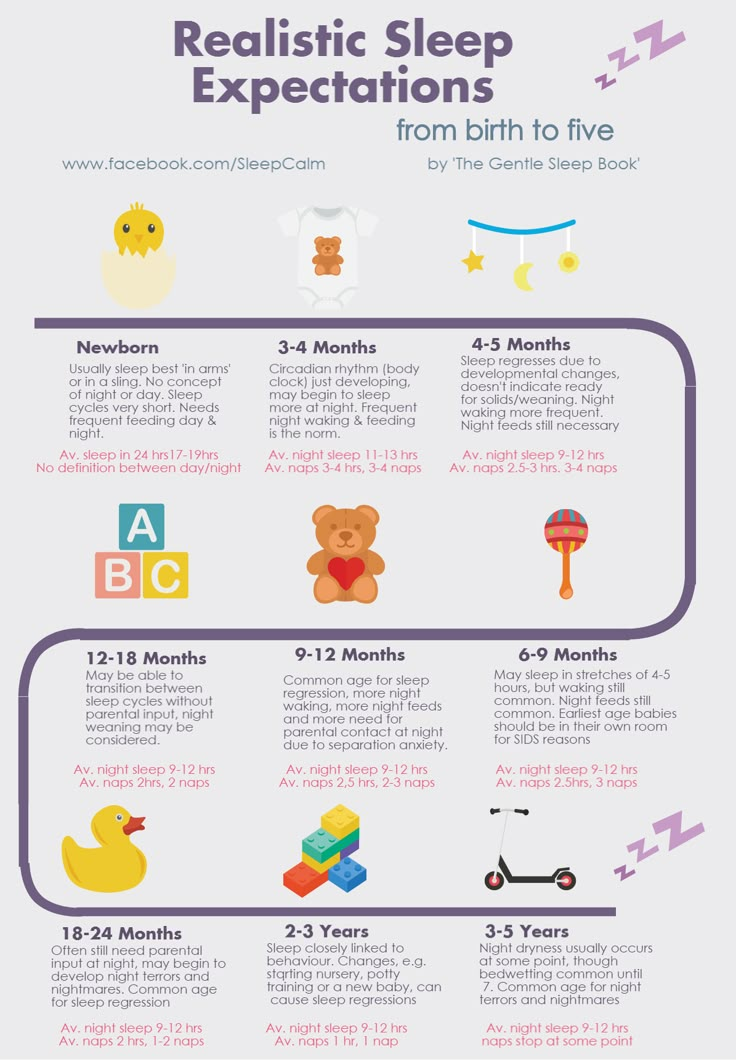
- Children who sleep through the night from an early age. You either have an overactive metabolism or a slow metabolism, which is bad. Such a scenario can subsequently lead to obesity. Don't downplay the fact that this "correct" behavior is an isolated feature.
First, you need to decide on the "type" of your child according to the proposed classification of sleep for children. Then soft corrective actions can be initiated.
It is important to find out why your baby wakes up in the middle of the night and how often. Observation and establishment of optimal biorefinement will allow you to quickly identify your type of night sleep and then begin to correct it.
Restless night sleep of a newborn
To calm an overactive "eagle owl" and teach him to relax at night, it is necessary to organize his daily routine.
- Increase communication with your baby during the day and avoid overstimulation.
- Keep the room where the child is supposed to be well lit during the day.

- Chamomile serie bath is very effective for calming your baby before going to bed at night. The child quickly feels cold and begins to actively move the limbs, accumulating fatigue. As a result, you can get high-quality relaxation and sound sleep.
- Arrest an active addictive game before going to bed.
- Shagling can let children sleep. The child can calm down because he is not disturbed by the unconscious operation.
- The reason for awakening seems to be full of diapers, physiological discomfort and impossible posture. In many cases, sleep problems leave the elimination of anxiety points.
- Ventilation in the room has a positive effect on a strong dream. Make sure the room is not hot.
To eliminate nighttime waking, parents can intentionally transfer bread crumbs to artificial feeding. There are both sticks: children sleep better, but the degree of children can increase rapidly.
One-year-old child's restless night's sleep
Apart from isolated cases, children usually sleep well at night.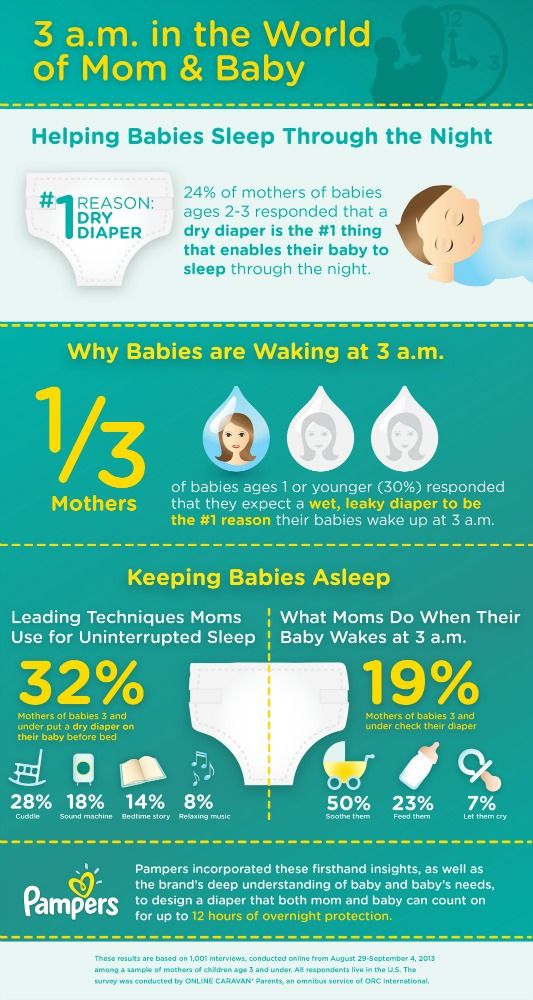 If your child is anxious or frantic, the reason for the care and the parent needs to be explored. These children often need more attention. If you create a friendly atmosphere at home, your child's behavior will change dramatically, and the quality of your dream will be improved.
If your child is anxious or frantic, the reason for the care and the parent needs to be explored. These children often need more attention. If you create a friendly atmosphere at home, your child's behavior will change dramatically, and the quality of your dream will be improved.
It must be clearly recognized by one infant that he is used for all kinds of education, activities and external play during the daytime, and that it is necessary to sleep and recuperate in the dark. If you dismantle this in an article, its hard to sleep, hard to sleep, and if you continue to sleep in agony at night, you can ask your child's expert for help.
Clinical perinatal psychologists have more detailed information than clinical psychologists who have completed the degree of perinatal psychology and the Institute of Psychogenic Research in the Reproductive Sphere and Volgologist Medical University.
All this can interfere with the complete rest and recovery of their parents and children, such as frequent awakenings at night, endless posture, restless sleep and early rising. There is no solution for a sleepy child, but there are many ways, one of which will surely work for you. Here are some of the most popular.
Co-sleeping
Shared dream implies that the child sleeps in the same bed as his parents, or almost all the time. Usually the mother who practices this method is the most comfortable and natural way, but many doctors and parents oppose lying down. Two statements are extremely logical.
Benefits of co-sleeping
Joint sleep has a positive effect on breastfeeding
During this time, prolactin (the hormone that controls the secretion of breast milk) peaks.
The whole family can sleep well
In families where you practice together, you can usually sleep well and sleep long. The child does not need to call his mother with a crying voice, stop crying many times during the night and repeat it.
The child has become confident
Close contact with the mother gives the child a sense of trust and helps to make sure he or she is safe. It is very important for babies to feel their mother next to them and not use their strength to cry. It is the quiet sleep of children that contributes to the harmonious development of brain cells and the formation of connections between nerve cells.
Infants are strongly attached to their parents
In Soviet times, maximum weaning from children (“Don’t get used to it”, “Sleep only in the crib”, “It’s too early to finish breastfeeding”) was widespread and was considered the only correct method of education. Psychologists now often say that a strong bond with a parent is a basic requirement for a child that affects his confidence in the world and well-being.
Natalia Novikova
Pediatrician, Massage Therapist, Physiotherapist
Children's sleep law
Arguments against co-sleeping
Many parents are afraid of accidentally crushing their child in their sleep, but this is practically impossible.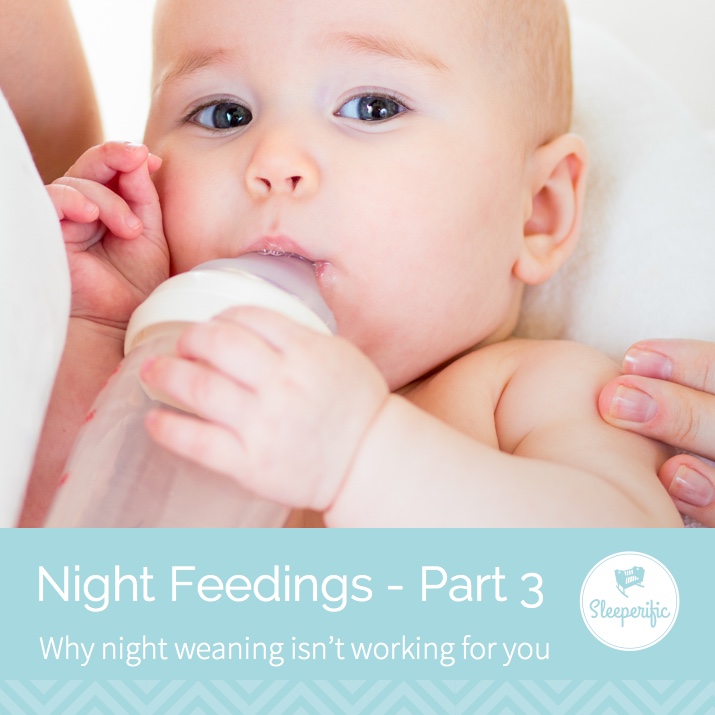 The nose of the newborn is wide and flattened, so he can breathe freely even when pressed against the mother's chest. The hormones also make the dreams of breastfeeding women extraordinarily sensitive, waking them up every time the baby moves. But in some cases, parents should never dream with their little one.
The nose of the newborn is wide and flattened, so he can breathe freely even when pressed against the mother's chest. The hormones also make the dreams of breastfeeding women extraordinarily sensitive, waking them up every time the baby moves. But in some cases, parents should never dream with their little one.
- Taking strong sleeping pills or sedatives.
- You will feel very tired and literally fall asleep.
- Some parents are carriers of skin infections.
- The child was born prematurely.
It is also not recommended to put the baby to sleep next to the older child. If there is no other way, parents should sleep between their children. Another common objection to co-sleeping is its incompatibility with individual lifestyles. In fact, most families face this problem, because apartments are not limited to one bed.
Co-sleeping precautions.
- Even babies who cannot crawl can fall out of bed. When you leave the room, carry your baby in a carrycot or growing mat.
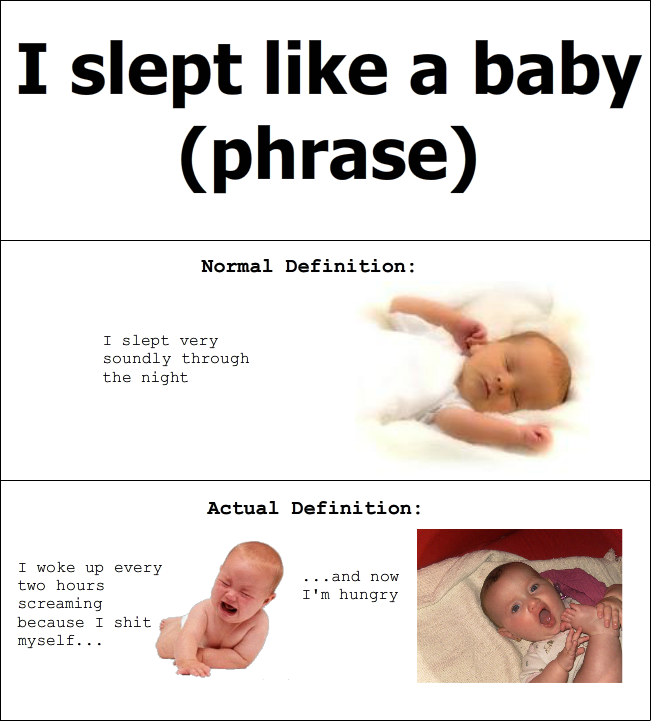
- Check the mattress, it should be firm enough, without bumps. We also do not recommend putting your child to sleep on a pull-out couch or surrounded by many pillows.
- Remove all unnecessary items from the bed, such as beds, soft toys. All this is a threat to euthanize a child up to 6 months.
Common sleeps can be practiced in two versions: in an adult bed and in a bed without sides and with a narrow passage. If you choose the latter, make sure the bed is secure and cannot be accidentally lifted.
Common dreams usually end at the age of 3-4 years. Your baby will be thrilled to start their "me time" and move into their crib.
Falling asleep on your own: how to teach?
Whether they sleep together or not, babies need to be put to bed and this can be a lengthy process. You can make a difference by teaching them to sleep alone. Some experts believe that 2-4 months is a good time to start. This is due to the fact that it is during this period that the cycle of early and late sleep is formed. Others recommend starting training after a year when the nervous system has matured. In any case, the "science" should begin after the child's sleep patterns have been roughly determined. It may also be necessary to instill a sleep ritual in the child and repeat it immediately before each bedtime. Such rituals typically last 15 minutes to an hour and are evoked by bathing, brushing teeth, changing into pajamas, reading a book, or swimming in a puddle. Many children love to "put on" their toys and say goodnight to them. after that? There are several options for what to do next.
Others recommend starting training after a year when the nervous system has matured. In any case, the "science" should begin after the child's sleep patterns have been roughly determined. It may also be necessary to instill a sleep ritual in the child and repeat it immediately before each bedtime. Such rituals typically last 15 minutes to an hour and are evoked by bathing, brushing teeth, changing into pajamas, reading a book, or swimming in a puddle. Many children love to "put on" their toys and say goodnight to them. after that? There are several options for what to do next.
Richard Farber's Controlled Scream Method
Richard Farber is an American pediatrician and founder and former director of the Child Disability Research Center. In 1985, he published Childhood Dreams. Solves all problems.” These words glorified him throughout the world.
What is the essence of Richard Farber's method?
At first, it is necessary to clarify the routine and rituals before the baby goes to bed.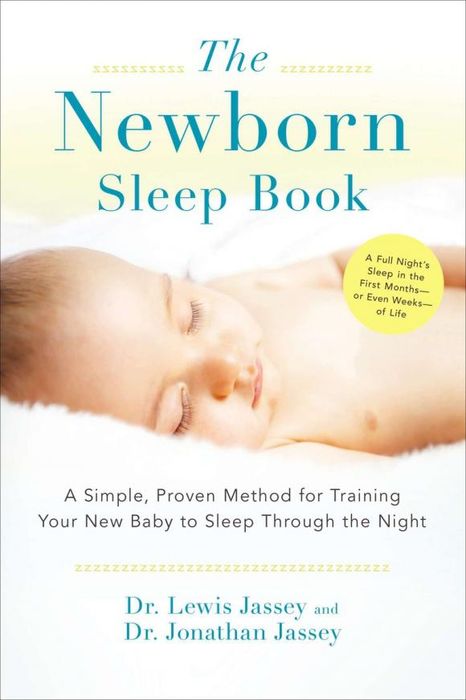 Then you can start. Put the baby in the crib, say good night and leave the room. Soon the baby, not accustomed to sleeping alone, cries, and the mother has to go back and calm him without taking him out of the crib. Sing a warm song, pat your baby on the back, or just sit by. After you calm down, please leave the room again. This cycle should be repeated several times, gradually increasing the time. Ferber recommends not breastfeeding or bottle feeding, not yelling, and only yelling when you enter the room.
Then you can start. Put the baby in the crib, say good night and leave the room. Soon the baby, not accustomed to sleeping alone, cries, and the mother has to go back and calm him without taking him out of the crib. Sing a warm song, pat your baby on the back, or just sit by. After you calm down, please leave the room again. This cycle should be repeated several times, gradually increasing the time. Ferber recommends not breastfeeding or bottle feeding, not yelling, and only yelling when you enter the room.
Be calm, persistent and determined if you try this method. It may be helpful to obtain non-intervention consent from other family members. Ferver should not be used in children under 6 months of age.
The Tracy Hogg Method - The Baby Spell
Tracy Hogg is a British nurse and best-selling author on parenting. Her signature books are What Does Your Baby Want?
What is the essence of the Tracey Hogg method?
Tracey Hogg proposes to follow the "Way" ("Diet, Activity, Sleep, Freedom"). It is extremely important to take into account the biological clock of each individual baby and take into account the totality of individual modes. It should be observed for several days and adjusted if yawning or fatigue occurs. Another fundamental point is to make a clear separation between sleep and food. In other words, don't put your baby to sleep on your chest or sleep on a bottle.
It is extremely important to take into account the biological clock of each individual baby and take into account the totality of individual modes. It should be observed for several days and adjusted if yawning or fatigue occurs. Another fundamental point is to make a clear separation between sleep and food. In other words, don't put your baby to sleep on your chest or sleep on a bottle.
Put the child to sleep after performing the Sleep Ritual using the Pigs, Hiss and Tangle specialty. It's like this. Rest your head on your shoulders and say “shish” loudly and rhythmically in your ear while tapping your shoulder blades with your back. The secret is that young children quickly tire of such sensory overload and become wild. As soon as your baby closes his eyes, move him to the crib. Do not stop whistling or patting on the back until the child is completely asleep.
This method is suitable for children aged 4 to 9-11 months, and from about 1 year old Hog offers an outlet called "Hug and Receive".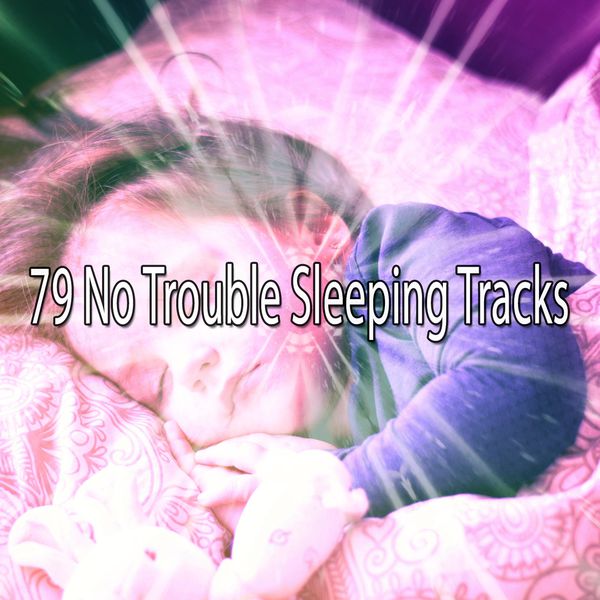 After completing the bedtime ritual, hug your baby tightly, put him to bed and calmly explain to him: “It's getting late. Go to bed and rest." If the baby is fidgeting, use known hissing/stroking techniques to avoid picking him up.
After completing the bedtime ritual, hug your baby tightly, put him to bed and calmly explain to him: “It's getting late. Go to bed and rest." If the baby is fidgeting, use known hissing/stroking techniques to avoid picking him up.
Elizabeth Pantry's No Tears Method
Elizabeth Pantley is a parenting author, child development expert, and baby sleep consultant. There is a bestselling book called How to Put a Baby to Sleep That Doesn't Cry.
What is the essence of the Elizabeth Pantley method?
The pantry method is one of the softest. The authors propose to analyze what the baby associates with going to bed, called the "anchor", and change it if necessary. For example, if you want your child to sleep in a crib that always falls asleep on your lap, you will need to put him to bed for 10-15 days. If necessary, rocking the baby and giving a breast or pacifier is not prohibited. Pentry advises starting with special "sleeping" items that tie the holiday to your child, such as toys, small pillows, and a blanket. When your child wakes up at night, give him another chance to put him to bed. Concentrate the attention of the baby, lull him or sing a nightly song. Pantry says that over time, children get used to a restful and steady sleep pattern, which allows them to sleep through the night without waking up. This method is suitable for babies aged 2-3 months.
When your child wakes up at night, give him another chance to put him to bed. Concentrate the attention of the baby, lull him or sing a nightly song. Pantry says that over time, children get used to a restful and steady sleep pattern, which allows them to sleep through the night without waking up. This method is suitable for babies aged 2-3 months.
The Mark Weisbrut Method - "The Dying Scream"
Mark Weisbrut is a 35-year-old pediatrician, father of four, and author of the international bestseller Good Sleep Makes Children Happy.
What is the Mark Wisebrut method?
Weisbrut, like others, recommends starting training after you have established a sleep routine and rituals for your child. We recommend going to bed and waking up early at 6-8pm because that is when babies are biologically suited for sleep. You should also avoid overwork and have a clear understanding of the rules for waking up the baby. For example, if your baby is 3 months old and has a dream interval of 80-90 minutes, start putting him to bed an hour after waking up. On the other hand, the Weisbrut method is quite simple: when you've finished your baby's sleep ritual, put him in the crib, say goodnight, and leave the room. However, unlike other writers, Weisbrut forbids responding to children's crying. After crying several times in a row, the baby gets used to loneliness and does not wake up.
On the other hand, the Weisbrut method is quite simple: when you've finished your baby's sleep ritual, put him in the crib, say goodnight, and leave the room. However, unlike other writers, Weisbrut forbids responding to children's crying. After crying several times in a row, the baby gets used to loneliness and does not wake up.
Of course, the choice of methods for putting the child to sleep, like other aspects of training, is the responsibility of the parent. But if possible, a soft position is desirable so that the baby does not cry alone. This can disrupt his basic trust in the world and his healthy attachment to his parents. Confidence in the love of mom and dad is a much more important need for a child than sound and long sleep.
References
- Weissbrute Mark Healthy sleep means a happy child. Moscow Publishing house Alpina Non-Fixin, 2014.
- Alpina Finknikova Alpine publishing house. Child's dream: A mirror reflecting the growth of a child.
 Moscow Publishing house Vlados, 2009.
Moscow Publishing house Vlados, 2009. - Carp Harvey Kids Sleep Simple solutions for parents. Moscow Publishing house Alpina Nonfiksun, 2016.
- Alpine Alpine Publishers. Positive parenting: healthy sleep and proper care. Moscow Publishing house AST, 2018.
- Furber Richard solves all problems for children. Moscow Alpina non-fixin publisher, 2016.
First breastfeeding of a baby who supplemented artificial feeding for a month
Breast milk is the ideal food for babies, especially one year after birth. It is an important nutritional and energy source, so we recommend that you continue breastfeeding until you are two years old.
Breastfeeding a breastfed child
Mommy no milk is a perfect meal, especially for a 6 month old baby. At six months, it is still an important source of energy and nutrition, therefore, who recommends raising it with breast milk until two years of age.
Monthly food. Foods to eat for children under 1 year old
Not only lack of nutrients, but also excessive supply will interfere with the normal growth of the child.
About the method of expanding the dietary diet for 8 months and the products provided to the child
An 8-month-old baby remains "familiar" in the latest new staple product.
The latest newborn milk powder is the most important new feature for newborns.
800 200 74 77
9-21 hours in Russia, free every day.
We are in a social network.
- terms of service
- Website Terms
- Feedback
- Frequently Asked Questions
- Site map
The ideal food for a baby is breast milk and breastfeed as much as possible. The World Health Organization recommends collecting only breast milk for the first six months, and then introducing additional food while continuing to breastfeed. Please continue breastfeeding as long as possible after the introduction of supplemental food. Specialized consultation is required to determine the conditions and methods for introducing complementary foods into infant formulas.
We are expanding our affiliate program. If you can cooperate, please use the feedback form.
The ideal food for a baby is breast milk and breastfeed as much as possible. The World Health Organization recommends collecting only breast milk for the first six months, and then introducing additional food while continuing to breastfeed. Please continue breastfeeding as long as possible after the introduction of supplemental food. Specialized consultation is required to determine the conditions and methods for introducing complementary foods into infant formulas.
I know the information (a)
By continuing to use this website without changing your browser settings, you must assume that we agree to the use of cookies.
Myth 1. After the abolition of breastfeeding, the child will not be put to bed
There is a reality. Most breastfeeding babies sleep at home with only their boobs. Also, if you don't have boobs, your baby may sleep, for example, while traveling in a car or while traveling in a stroller. When a baby exceeds one y-lying line, many mothers consider ending breastfeeding. And with such thoughts, there is a very big fear of “what to do during sleep.” Well, he sleeps in the stroller during the day. What are you doing at night? ""
When a baby exceeds one y-lying line, many mothers consider ending breastfeeding. And with such thoughts, there is a very big fear of “what to do during sleep.” Well, he sleeps in the stroller during the day. What are you doing at night? ""
First, calm down and look around. There are many kids who no longer smoke their boobs, sleep in the middle of the night. Secondly, we have no choice but to believe that all the problems are exaggerated several times over. Of course, one night the baby is wary and sometimes asks for his beloved "Titi", but after a few days he falls asleep without much difficulty and makes her sleep less sleeps with his breast. Nothing. Or rather, it could be more.
Myth 2. A child aged one to two years needs to be fed and watered at night
There is reality. Such thoughts visit a mother who wants to stop breastfeeding. Well, babies often breastfeed at night, especially early in the morning. Some mothers report that their children smoke most of the night.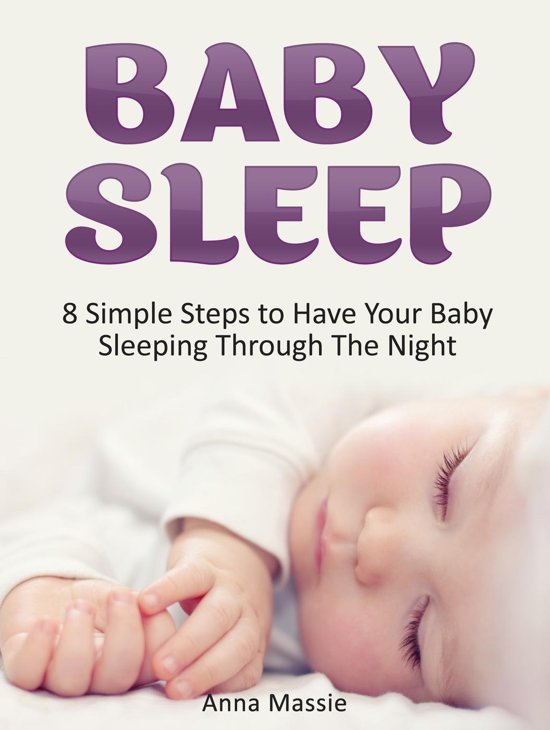 Sometimes it's wrong. However, the mothers' few hours between breastfeeding and breastfeeding went by quickly and it seems like nothing happened for them. In addition, after a year, lactation itself becomes quite sensitive to the mother, so sleep during lactation becomes superficial. If mothers look at the clock at night, you will be surprised at the speed of time.
Sometimes it's wrong. However, the mothers' few hours between breastfeeding and breastfeeding went by quickly and it seems like nothing happened for them. In addition, after a year, lactation itself becomes quite sensitive to the mother, so sleep during lactation becomes superficial. If mothers look at the clock at night, you will be surprised at the speed of time.
What do you do after baby food? For the first time after baby food, there are children who often wake up in the middle of the night (even if they are not looking for boobs during the day). What should my mom do? Provide drinks. If it's pure water, that's the best. It's a good idea to drink water in a baby bottle, cup, or cup as children drink throughout the day. In the evening, some parents drink sweet tea, compotes and juice. Children are used to this and ask for sweets many times, so it's better to stop. As a result, in addition to allergic reactions, children may develop early tooth decay that is not easily treated.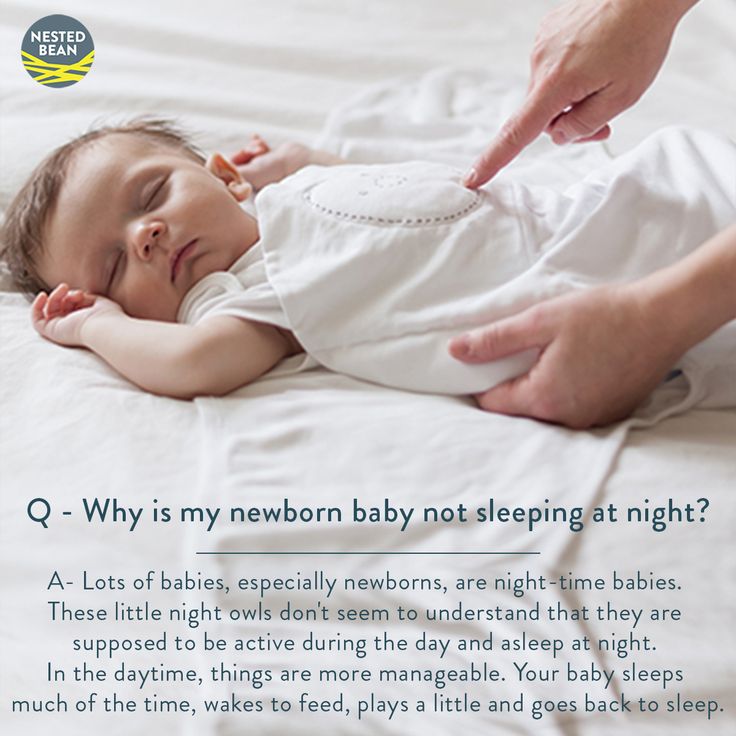
Some children continue to smoke in the middle of the night. You will be able to calm down and fall asleep when you wake up at night. Even if you don't have to worry, the need to immediately use pacifiers is a thing of the past. In many cases, the picture painted in the parents chapter of a "tragic" life without a desert does not become a reality, and it all goes all the way.
Probably for the first time since the start of baby food, the child will get up early and want rice. Great. If you do not have the physical strength to cook from 5:00 to 6:00 in the morning, you need to make a calm porridge or dilute porridge made in a baby food box. You will gradually sleep, do not drink often, and you will be able to sleep well in the morning.
Myth 3. A child must be able to fall asleep on his own
There is a reality. There are too many children sleeping in their parents' beds and many parents are sleeping in relation. When the baby falls asleep, carefully move her to the crib or your parents will leave the room. Some kids call mom and dad when they wake up at night, but they don't always. Some of these occur without their parents noticing because their children can sleep on their own.
Some kids call mom and dad when they wake up at night, but they don't always. Some of these occur without their parents noticing because their children can sleep on their own.
Some doctors and psychologists recommend teaching them to sleep alone from childhood. Of course it's necessary? A small child has a strong psychological attachment to his mother, which is natural and beautiful. Process until the baby is asleep, sometimes more than about an hour or more. He Hi t-hee plays with his hands and hair, rolls over, chats and asks for a massage, hugs and kisses. Children who have never been denied affection have been found to develop into a more self-confident individual who is more self-sufficient (surprisingly!) because they don't have to seek attention or affection. Dad and mom know that this is their reliable support. And if you can save your child from night monsters and scary monsters and evacuate to bed, you can solve any other "everyday" problem.
Myth 4. You can't sleep in your parent's bed
There is a reality. Prejudice that children should not sleep in the same bed as their parents.” Some say they are unhealthy. The previous child spent all day in the arms of his parents and got used to the plant phase, so there is no fear. And the child talks about what hygiene, after being able to climb everything that cannot be accessed in his apartment and enjoyed everything in his teeth.
Prejudice that children should not sleep in the same bed as their parents.” Some say they are unhealthy. The previous child spent all day in the arms of his parents and got used to the plant phase, so there is no fear. And the child talks about what hygiene, after being able to climb everything that cannot be accessed in his apartment and enjoyed everything in his teeth.
There are also parents who do not agree with the child sleeping in bed, fearing the sudden death of the child. First, there are no decisive research findings that support this warning. Secondly, after a year there is almost no danger that babies will suddenly die in their sleep.
However, we will give you advice for parents sleeping with your child.
- Do not smoke before bed (or rather stop this habit for the whole family).
- Do not place it on the edge of the bed so that your child may fall to the floor.
- Do not move your father to another room with a crib. If you can't sleep with three people, make a choice for your father.

Myth 5. If you don’t have to get up early in the morning, it doesn’t matter what time the child is put to bed in the evening
There is a reality. It is very important for young children to protect their daily habits. Children who are accustomed to the daily routine are calm, sniff well, have no noise and obey their parents. If possible, it is best for the child to fall asleep at the same time from 8:00 to 21:00 and no later than 22:00. Sleeping until midnight has proven to be very important for human health.
Even if your child's mother hopes to sleep for a long time without rushing to work in the morning, there is no guarantee that the child will support this desire. At all, including children, the biological rhythm suffers. As a result, the child is more likely to get up at the usual time in the morning. At the same time, the fact that you can't sleep at night can affect your mood and behavior during the day. In addition, if you sleep a few hours longer than usual in the morning, your normal rhythm of life will collapse, and your mother and mother will have problems.
Of course, there are different situations in life. It's impossible to schedule everything in a minute and keep a schedule every day, but following a child's routine will at least benefit the entire family.
Myth 6. The child will fall asleep when he is tired
There is a reality. Of course, many parents have noticed that if you miss your regular bedtime for various reasons, you won't be able to sleep easily. In this case, the child is overly excited. Yes, he is very tired. Yes, I really want to sleep. But I don't know what to do.
Parents may not intentionally sleep their children at the right time. For example, when a child starts sleeping outside before arriving home. It worries and amuses him. At home, it turned out that the child did not sleep, and the mood was completely bad.
Sleep and awakening are very important for children. You should strive to adjust all things and activities for your children, and not vice versa.
Myth 7. Children older than one year do not wake up at night
There is a reality. The child wakes up in the middle of the night. They do not always know it, and hardly remember. The child wakes up during REM sleep and sometimes wakes up many times in the middle of the night. This is the most obvious. Also, some babies fall asleep on their own, while others call dads and moms on the spot. You don't need to scold or scold the child. It's a good idea to hug, gently pat your head back and forth, or drink water.
The child wakes up in the middle of the night. They do not always know it, and hardly remember. The child wakes up during REM sleep and sometimes wakes up many times in the middle of the night. This is the most obvious. Also, some babies fall asleep on their own, while others call dads and moms on the spot. You don't need to scold or scold the child. It's a good idea to hug, gently pat your head back and forth, or drink water.
Children often wake up when they are teething. A year later, molars and canines with large erupting surfaces erupt. As a result, the child may feel uncomfortable, wake up frequently and sleep easily. In this case, it is worth consulting with a pediatrician. They may prescribe a special treatment to ease the pain of the tear.
Myth 8. In the second year of life, children sleep much less than in the first year.
There is a reality. It is true that babies often seem to be sleeping all the time. Especially when the child grows up and everything is forgotten.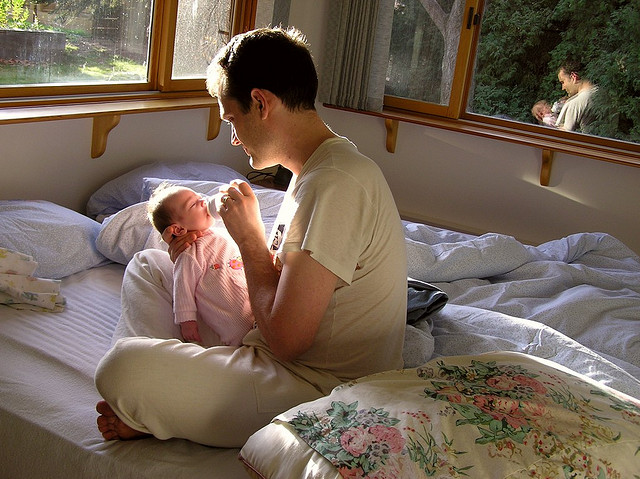 But what does it really look like? Newborns sleep just over 16 hours a night, while 3-month-old babies sleep 15 hours a night. By 2020, sleeps 13-14 hours a day, and after 2 years only 1 hour. can't you believe?
But what does it really look like? Newborns sleep just over 16 hours a night, while 3-month-old babies sleep 15 hours a night. By 2020, sleeps 13-14 hours a day, and after 2 years only 1 hour. can't you believe?
He sleeps 3-4 times during the day and is awake more often than a 1-year-old child. First-year-olds also usually wake up early, sometimes as early as 5-6 in the morning. But the children of the second year of life sleep only once or twice during the day (only 2-3 hours), and the rest of the time they sleep at night (10-11 hours).
This is why babies sleep only 2-3 hours per night compared to older children. Unexpectedly unknown, just math.
Myth 9. It is necessary to put the baby on the potty at night
There is reality. By the age of two or three, most parents are faced with the problem of potty training their children. By lunchtime, everything is clear. Children know their needs and follow the relationship between needs and consequences. I understand why my pants got wet and how to avoid it. Accept your parents' compliments when you've done your due diligence. But what should I do at night?
I understand why my pants got wet and how to avoid it. Accept your parents' compliments when you've done your due diligence. But what should I do at night?
Whether or not to use night diapers for children aged 1-3 is up to the parents. There are no rules. But the big question is whether you should set yourself an alarm clock and feed your child on the potty in the middle of the night. It is too early to rejoice if the mother put the unknowing baby to sleep in a pot and gave her an autograph. Yes, the leaves were dry, but the child did not understand what had happened. In other words, the idea that "I can write in my sleep" is fixed in his subconscious.
Whether you can wake up a child is another matter. In the morning you hardly remember the night, but then everything became conscious. But it's also easier to put the baby to bed, otherwise you'll still be playing with him at 3am.
What if you let your baby sleep without a diaper (paper diapers with water absorption are convenient)? Waking up wet or cold. He will feel how his mother dressed him, and he will become comfortable again. He must remember that with this container he can avoid the problem of getting his underwear wet. But are parents ready for nightly dressing up and rolling in bed?
He will feel how his mother dressed him, and he will become comfortable again. He must remember that with this container he can avoid the problem of getting his underwear wet. But are parents ready for nightly dressing up and rolling in bed?
what should it be? All children are unique. Only "trial and error" will help here. The moment the child gets stuck and calls for mom or asks for water, invite the child to sit in the container. And just by putting diapers on your baby, you can enjoy that sound sleep and put off nighttime potty problems for another few months or even a year.
Myth 10. A child sleeps better and falls asleep better with TV
There is a reality. Who has not slept under the silent mask of the TV Putting a talk box in the children's room? “And in general, do not teach your child to fall asleep quietly. And GO on tiptoe!” In many homes, this is a strong argument in favor of having the TV next to the child.
First of all, both elderly grandmothers and 2-year-old children must be respected. You can't make a sound after a few hours. Secondly, children absorb all the information with their eyes and ears. If terrible news, bad words, negative words, and words that aren't a child's screen stream every minute, it's hard to choose something suitable for your child on the chart. Thirdly, the larger the TV, the more the child sticks to the TV, causing all the results such as whimsy, bizarre, visual disturbances, overexposure and nervous sensitivity.
You can't make a sound after a few hours. Secondly, children absorb all the information with their eyes and ears. If terrible news, bad words, negative words, and words that aren't a child's screen stream every minute, it's hard to choose something suitable for your child on the chart. Thirdly, the larger the TV, the more the child sticks to the TV, causing all the results such as whimsy, bizarre, visual disturbances, overexposure and nervous sensitivity.
Where is your child? Walking before bed is effective but difficult to use. Then it's a good idea to ventilate the room before putting the baby down. And it's time to establish the wonderful habit of reading before you go to bed. But don't forget good lighting. Do not teach to read in light or night light. If you can't read, it's a good idea to put on soft music or high quality audio jacks.
Two months later, the main adaptation period returned for both mother and child. Mom has already learned to recognize the status and needs of breadcrumbs with a special signal. Children are accustomed to the new world around them and are interested. The two-month-old system of the child is still being formed, but there is already a certain rhythm.
Children are accustomed to the new world around them and are interested. The two-month-old system of the child is still being formed, but there is already a certain rhythm.
Sleep patterns
After two months, children often sleep at the same time each day. Night sleep can be interrupted by breastfeeding, as after a month. Even if the time is long, dreams make up most of the day. Sleep rules are from 15 to 17 hours a day for two months. This is a day dream 5 to 6 times, 2 to 2.5 hours, and sleep time of about 6 hours. If you sleep less than 11 hours or 19 hours or more, you will have the opportunity to consult a doctor.
At night, children eat almost in their sleep. Relax immediately and go back to sleep. If you show an active state at night or stay awake after breastfeeding, it can interfere with your daily life. During the day, the child may sleep too much and have a bright and energetic night. In this case, it is worth switching to sleep mode for the next age. Shorter sleep times per day, activate the Wak e-Up, regularly ventilate the nursery, and walk more in the fresh air.
Shorter sleep times per day, activate the Wak e-Up, regularly ventilate the nursery, and walk more in the fresh air.
Feeding schedule
A 2-month-old baby is breastfed and given a mixture of daily life that follows the breast-wake-sleep pattern. GV does not set a very strict submission schedule. If the breast is requested one month after birth, the number of errors that alternate between sleeping, waking and breastfeeding will occur in the second month and will be gradually established. The feeding interval should gradually become longer. A two-month-old baby eats on average every 3-3.5 hours.
If you are breastfeeding smoothly and your baby is steadily gaining weight, don't let your breast feed, at least until you see that the cause of the crying is starving. If you think that your child is not eating and your child is inadequate and the concern is confirmed, we will strive to support and restore patient care, such as breast augmentation, including at night. Do not re-introduce formula without consulting your pediatrician.
Do not re-introduce formula without consulting your pediatrician.
For children, the breastfeeding artificial feeding method is still strict according to the schedule. The amount of daily calculated taking into account weight and age is given at 6-7 times. So one part is defined. If you get up in the middle of the night after two months and find him hungry, crying, continue breastfeeding at night. If you sleep without waking up, you don't need to breastfeed at night.
Approximately have a 2 month old baby
06:00-First serve 09:30-2 serves 13:00-3. 16:30 to 4th feed 20:00-5. 23:30-6 feeding 03:00, night, breastfeeding - if you need it.
Walking mode
It is important for a two-month-old baby to take in fresh air in his daily life. The pediatrician recommends walking as much as possible in the cool season for 5-6 hours and walking as much as possible in the summer.
Go for a walk at the same time every day. It's a good idea for a two-day-old baby to provide sleep during the day.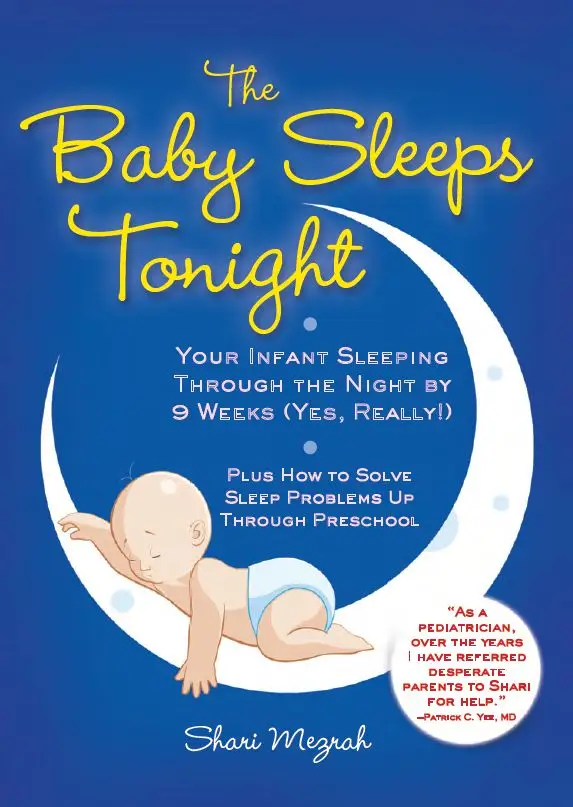 The measured swing immediately hits the baby and you are not interested in the surrounding scenery because you cannot see much even if you are lying on the stroller.
The measured swing immediately hits the baby and you are not interested in the surrounding scenery because you cannot see much even if you are lying on the stroller.
Depending on the weather outside, the child's mood and the source of information, adjust the length and number of daily walks. If you are unhappy with these elements, replace the walk with a veranda or balcony.
What can a child do when he is 2 months awake? Of course, just lying in bed for a long time is boring. Awakening to please can be used according to the game of exercises and age.
Two months after birth, I begin to raise my head and hold it. Be sure to spread it on your stomach 30 minutes to 1 hour before meals and 2 hours after meals. This exercise is effective not only for training your child's muscles, but also for preventing rules, pain and constipation.
The child at this time has already concentrated on things and faces and can listen with interest in sound. Fix the music of mobile mobile phones in the crib or hang the rattle at 30-40 cm at the height of the baby's chest.
There is also a black and white photo option for breadcrumb training. Insert a contrasting picture in a place where children can see clearly, such as the side of a bed or a wall. It doesn't make much difference whether it's the animals in the picture, the plant or the drawing is clear. Children are enough to look at the lines with the focus of their eyes, and they do not explore the world around this picture.
What most needs a child who most needs is his mother. Use the time to socialize by talking to your child, singing songs and nursery rhymes, auditory poetry and fairy tales. It's not a problem that their service is not enough for children. Embracing babies and walking, talking about things and events around them. The child soothes, hears the rhythm of words and increases passive vocabulary.
How to get your baby to sleep through the night without waking up: 6 steps . But according to various surveys conducted in the US, Canada, Australia and European countries, more than 70% of parents would like their children to sleep longer and better at night.
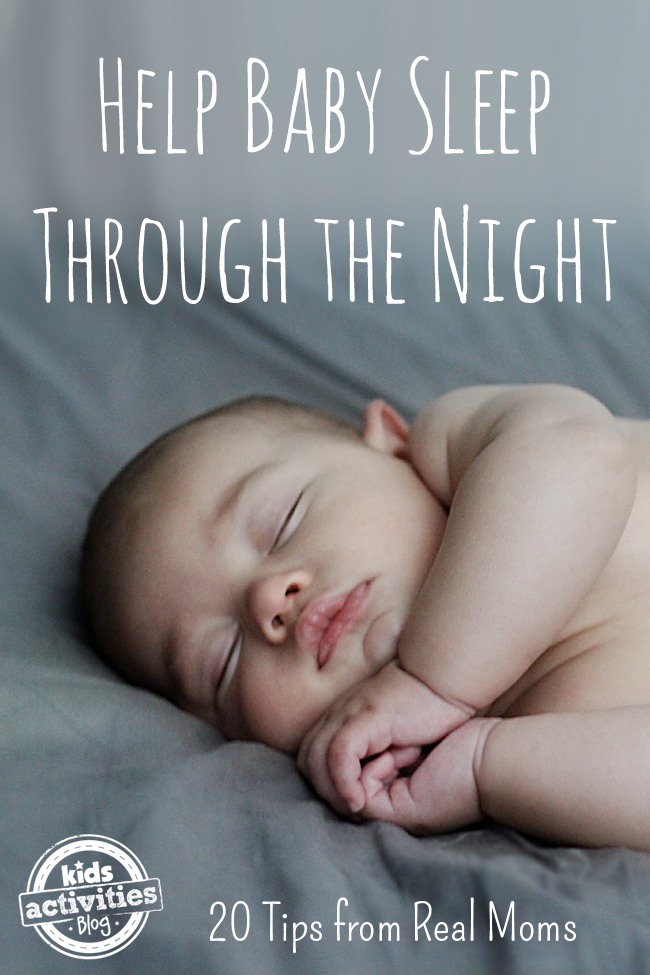 It is, as you can see, a large number of people. Indeed, after birth, babies fall into one of two categories. Some children sleep well at night literally from the first days of returning from the hospital, others wake up their parents several times a night for a year or even two. Why is this happening?
It is, as you can see, a large number of people. Indeed, after birth, babies fall into one of two categories. Some children sleep well at night literally from the first days of returning from the hospital, others wake up their parents several times a night for a year or even two. Why is this happening? Firstly , all children are different. It is believed that any healthy baby is ready to sleep continuously for 5-6 hours from the age of about 6 weeks and when he reaches a weight of 5 kg. A healthy 6 month old baby can sleep continuously for 11-12 hours a night. In addition, some are groundhogs by nature, while others are too active to spend the lion's share of their free time sleeping (even in the first weeks of life, when, it would seem, there is nothing else to do but sleep).
Secondly , an honorable role is assigned to the organization of children's sleep rules - guess who? We, parents, and we just tend to forget this. And here the question arises: are we doing everything right? Indeed, in addition to the biological predisposition of the baby to a healthy sleep, there are also objective realities of everyday life.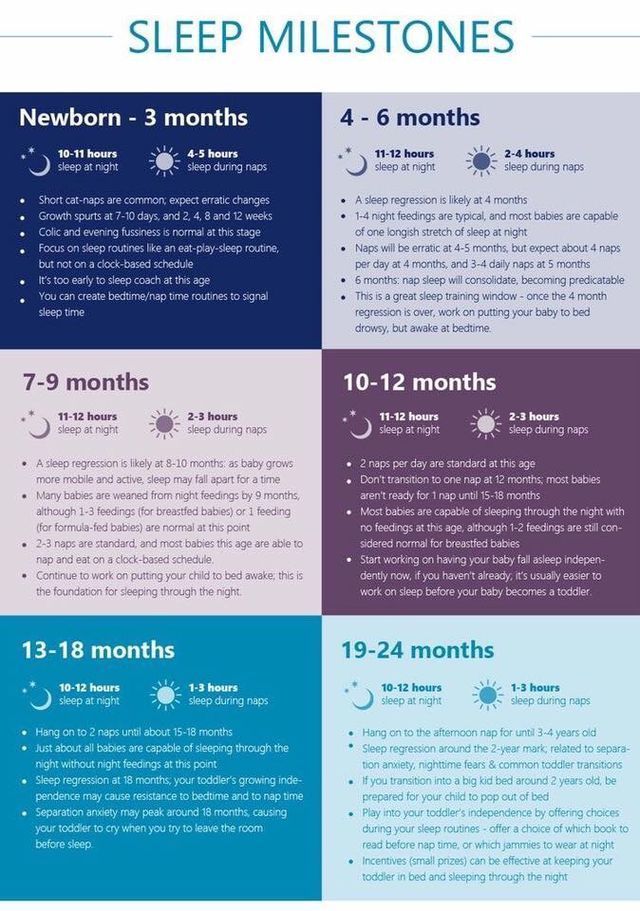 And in order for the child to sleep better at night, you need to adhere to certain principles of behavior.
And in order for the child to sleep better at night, you need to adhere to certain principles of behavior.
74% of American mothers with children under the age of one say that the most important thing for them in this life is getting enough sleep. Moreover, 28% are ready to pay any money for a full night's 7-8-hour sleep.
Don't dramatize the situation
Parents' first children usually sleep worse than their younger siblings later on. Lack of experience, increased anxiety of mothers and fathers lead to the fact that the slightest groaning of a child in the middle of the night is perceived as a disaster. And now the light is on, and the whole family is awake.
What to do? Take it easy. Newborns can wake up several times a night, but at the same time they know how to fall asleep on their own, whimpering a little. Besides, if nocturnal awakenings become a cause for serious concern for parents, then the baby involuntarily adapts to the general disturbing background . If the nighttime awakenings of the baby are not the only thing that worries you, then it makes sense to pay more attention to your condition and cope with it. The fact is that babies are very sensitive to the emotional background in the house, so any conflicts or depression in the mother can provoke sleep problems in the child.
If the nighttime awakenings of the baby are not the only thing that worries you, then it makes sense to pay more attention to your condition and cope with it. The fact is that babies are very sensitive to the emotional background in the house, so any conflicts or depression in the mother can provoke sleep problems in the child.
- Photo
- Getty Images/Vetta
Deal with colic
Up to 25% of parents experience this very common cause of sleep disturbance in their first months of life. They occur in babies older than 3 weeks and disappear by 3 months. The child tenses, blushes, brings the legs to the stomach and cries piercingly. The cause is considered to be increased gas formation in the intestines and the immaturity of the digestive tract.
What to do? Try different means - something is sure to help. Drink the baby with children's tea with fennel, dill water. Put a warm diaper on your stomach. Massage the abdomen in a clockwise direction or bend the legs at the knees, press them to the stomach and take them back. Lay the baby on your stomach. Install the gas pipe. Give the medicine recommended by the attending pediatrician in these cases. American experts, for example, recommend driving a child in a car - the pain syndrome will be removed and the baby will fall asleep. In general, in the United States, the “rule of number 3” is used to diagnose colic: if the child cries for three hours a day, three times a week and three weeks in a row. If it is less and less common, it is not colic, and the cause must be sought elsewhere.
Put a warm diaper on your stomach. Massage the abdomen in a clockwise direction or bend the legs at the knees, press them to the stomach and take them back. Lay the baby on your stomach. Install the gas pipe. Give the medicine recommended by the attending pediatrician in these cases. American experts, for example, recommend driving a child in a car - the pain syndrome will be removed and the baby will fall asleep. In general, in the United States, the “rule of number 3” is used to diagnose colic: if the child cries for three hours a day, three times a week and three weeks in a row. If it is less and less common, it is not colic, and the cause must be sought elsewhere.
Sleep separately if possible
Children who sleep in the same bed or in the same room as their parents wake up more often than those who sleep in a separate nursery . Upon returning from the hospital, many parents try to put the baby next to them at night: indeed, frequent feedings and changing diapers create the impression that you literally cannot leave the baby for a minute, day or night.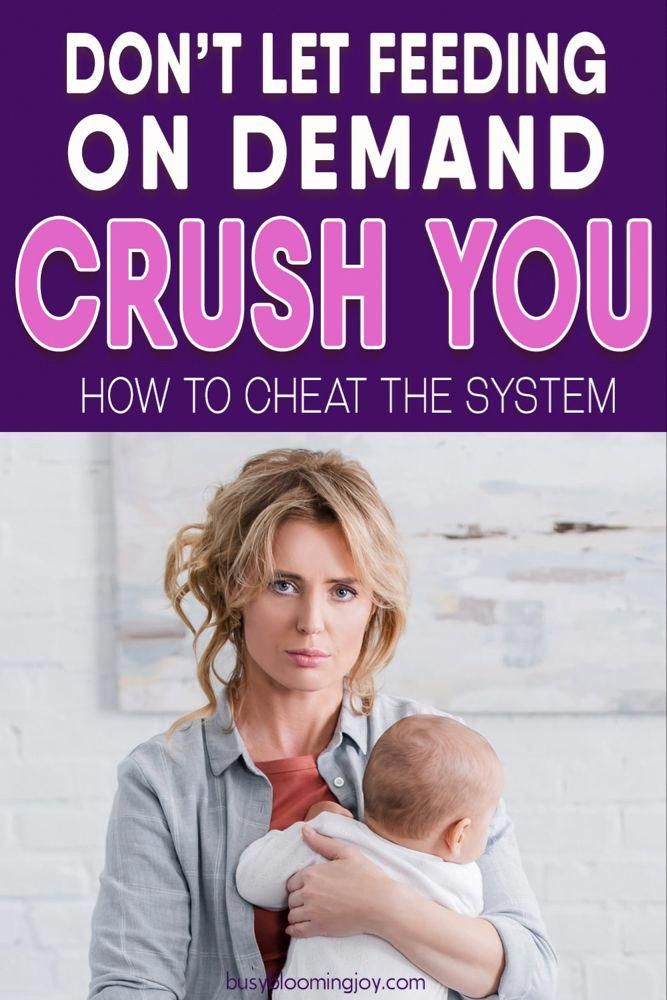
What to do? Once your baby has established a feeding schedule (and this happens to all babies between 2 weeks and 3 months of age), one of the options for getting a good night's sleep is to sleep in separate rooms. Frequent awakenings of parents at night are absolutely unjustified - children can fall asleep without assistance, and the mother gets up to the baby anyway at the first call, often without waiting for the crying to begin. If the baby sleeps in another room, then those tossing and groaning that do not deserve her attention, she will not hear.
Do not combine breastfeeding and going to bed
American sleepologists say that 50% of breastfed babies wake up at least once a night (from 12 am to 6 am). This is especially true for children, who also sleep in the same room with their parents: the baby smells mother's milk even at a distance. Among artificial babies, this percentage is significantly lower - 20. Breast milk is digested faster than an artificial mixture - therefore, a baby who eats mother's milk will wake up from hunger two hours after feeding, an hour and a half earlier than the "artificial one".
What to do? Of course, it is not worth transferring the child to formula. But you should also not fall into the typical trap for young mothers: “in order for him to calm down and fall asleep, he must be breastfed.” Feed some time before going to bed, away from the crib, change clothes after feeding, and let's hold in the arms of another person, if possible.
Don't rock your arms before going to bed
Babies who are first rocked and then placed in a cradle or crib while sound asleep will wake up sooner than those who are laid awake.
What to do? Try not to accustom to motion sickness before going to bed, especially on the hands. Small children, as we noted above, are perfectly able to fall asleep on their own - they even sing lullabies to themselves. A baby who has been cradled in her arms and then placed in her crib will feel a change of scenery, either shortly after laying down or during the initial stage of awakening. Subconsciously, he considers it unnatural (it’s more comfortable and pleasant for mom in her arms, who can argue with that?) And wakes up earlier than she could.
Subconsciously, he considers it unnatural (it’s more comfortable and pleasant for mom in her arms, who can argue with that?) And wakes up earlier than she could.
- Photo
- Getty Images/Westend61
To get your baby to sleep, you can try to move him in the car, rock him in a cradle with a vibrating bottom, or turn on the vacuum cleaner or washing machine in the apartment.
Teach your baby to fall asleep on his own
Babies who are allowed to fall asleep on their own in the first months of life have far fewer problems falling asleep than those who are sat until they fall asleep and lullabies are sung every night.
What to do? Toddlers are great at calming themselves - they just don't need to be disturbed. Some suck their thumb, others stare at the ceiling, others sing lullabies to themselves... As soon as you notice that the child is preparing to fall asleep, it is better to move away from the crib, dim the lights, and reduce the noise activity in the apartment.






